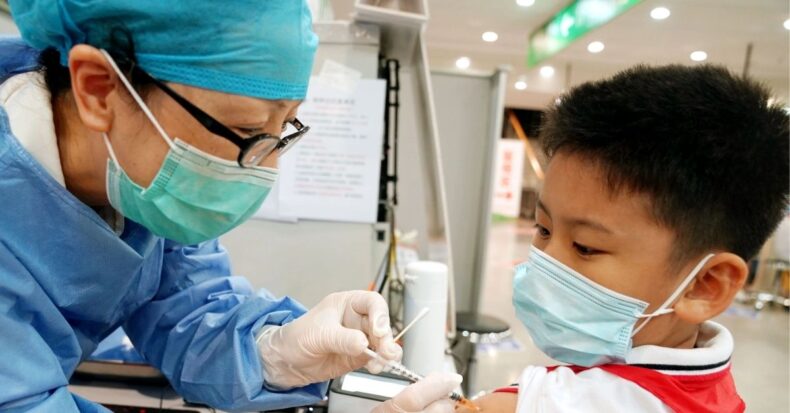China’s vaccine stock market analysts are lowering their earnings predictions due to increased competition among vaccine manufacturers and state-mandated price decreases.
Stocks have been falling since a strong 55 percent surge early last year during the first phase of the countrywide vaccination program.
China’s vaccine stock market has been flat this year, a far cry from the enthusiasm that greeted their vaccines when they began to power a countrywide vaccination program last year.
Since a 55 percent stock breakout in the first half of 2021, Sinopharm Group, Shanghai Fosun Pharmaceutical, CanSino Biologics, and Chongqing Zhifei Biological Products have all struggled.
The pullback this year cost investors 83.2 billion yuan (US$12.7 billion) on paper.
China’s Vaccine Stock Market: The Market Analysis
The sell-off isn’t being driven by market sentiment. According to Bloomberg statistics, at least 15 analysts have lowered their earnings or price estimates for four in the last six months.
As new Covid-19 variations and lockdowns open the door for new vaccinations to compete with two leading providers in mainland China, their best growth may be behind them.
“Competition is increasing, and prices are projected to fall,” said Kay Mai, an analyst with Shanghai’s Guotai Junan Securities.
“It’s unclear whether other new vaccinations will be able to catch up, but their market share is undoubtedly growing.”
According to the most recent figures, Sinopharm and Sinovac have supplied almost six billion doses of vaccines worldwide, accounting for more than half of all vaccination doses. Both are part of COVAX, an international effort to get Covid-19 vaccinations to people who need them.
Sinopharm’s Earnings
In the first half of 2021, Sinopharm’s earnings climbed by 24% to 3.6 billion yuan, compared to the same period last year. In Shenzhen, CanSino has lost half of its market value, while Chongqing Zhifei has lost 25%.
Inactivated vaccines have been shown to be unsuccessful in protecting against Omicron as a fourth booster injection, according to a study released by Sun Yat-sen University; however, recombinant spike protein or mRNA vaccines may be good candidates.
Spiking of Beijing Prices
Meanwhile, Beijing has taken steps to reduce vaccination pricing, putting the industry’s profit margins in jeopardy. The National Healthcare Security Administration has reduced vaccine prices from as high as 90 yuan per dosage to as low as 20 yuan per dose, according to an official earlier this month.
Guotai Junan has lowered Sinopharm’s profitability prediction for this year by 3.6 percent, while TF Securities has lowered CanSino’s revenue forecast to 3.1 billion yuan from 9.1 billion yuan, citing a drop in vaccination pricing among other factors.
“Rising oil prices, as well as Omicron-dominated Covid-19 breakouts in several sites across China, exacerbate the sector’s difficulties,” noted Guotai Junan analyst Mai.
“However, in 2022, monetary relaxation and payment settlement measures are likely to aid in the reduction of financial stress.”
As a result, these are the challenges, which include the stock market and the oil price, which have dominated the Covid 19 outbreak and also have difficulties.
Published By : Chittajallu H S Kumar
Edited By: Kiran Maharana













